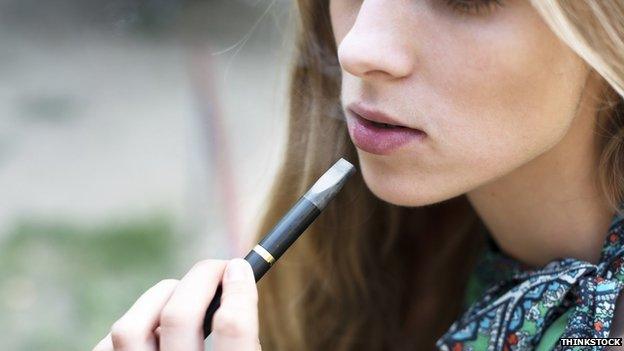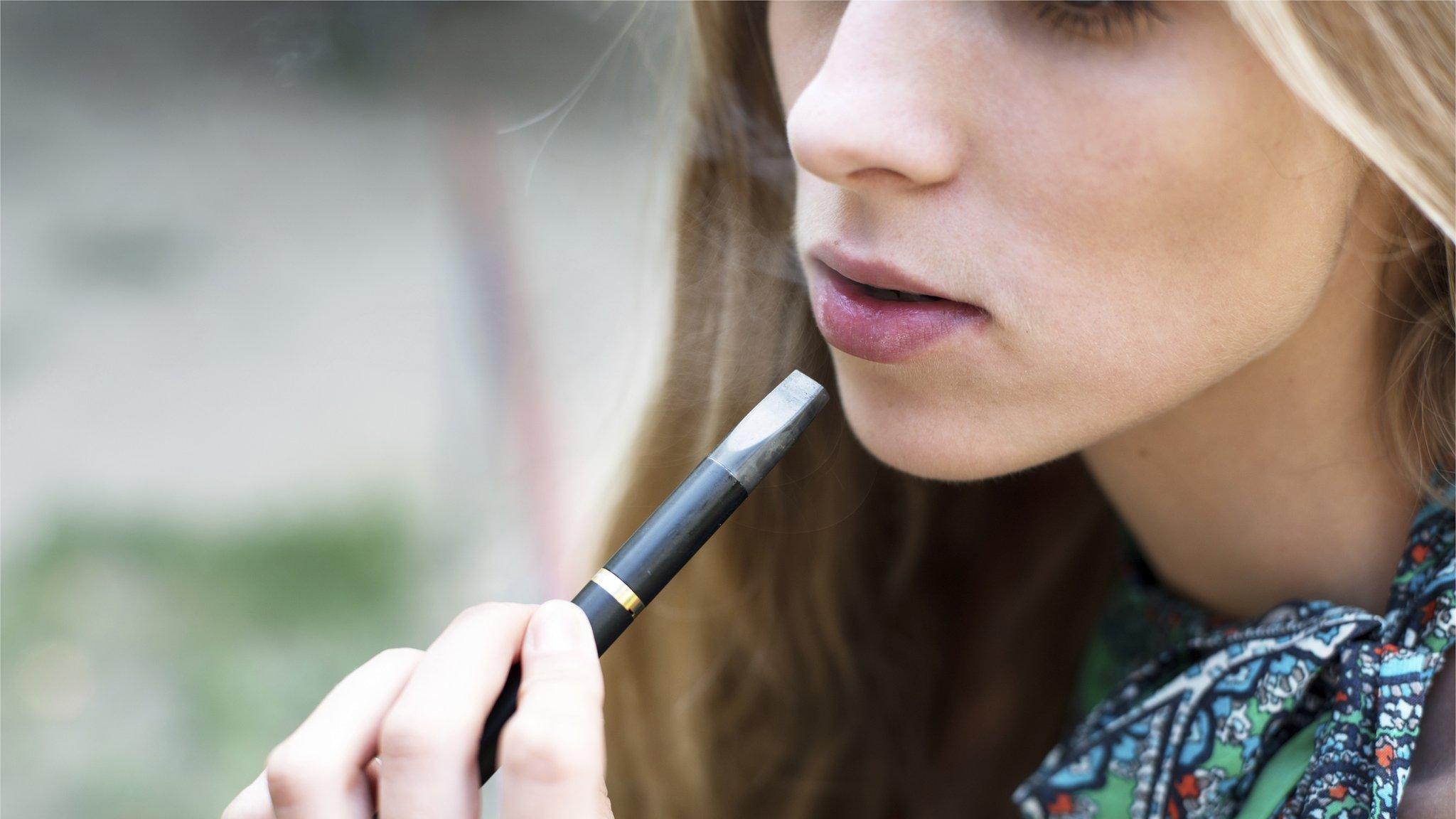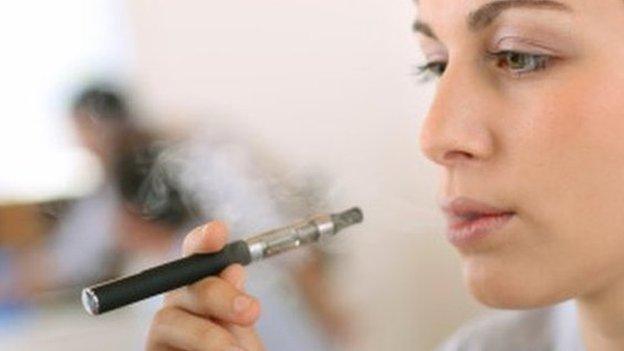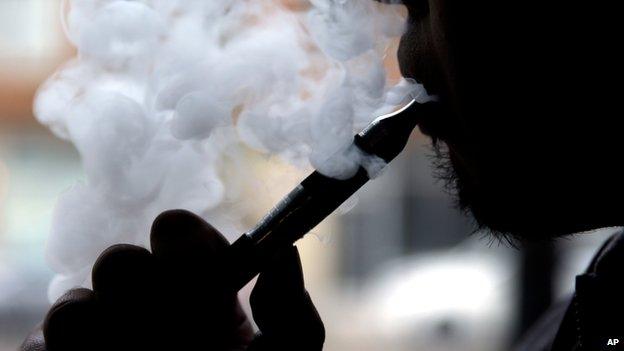More pupils try 'vaping' than smoking
- Published

More pupils in England aged between 11 and 15 have tried electronic cigarettes than have tried smoking, according to official figures.
The Health and Social Care Information Centre data, external showed the lowest levels of smoking or drinking ever recorded.
It asked pupils about e-cigs for the first time and found that more than one in five had tried them.
The figures, based on a survey of 6,173 pupils in 210 schools, showed only 3% had tried legal highs.
There have been consistent falls in the number of children taking up smoking.
In 2003, 42% of pupils had tried cigarettes at least once, but that figure now stands at 18% - the lowest since records began in 1982.
The pupil survey, which was conducted by the NatCen Social Research and the National Foundation for Educational Research, shows the popularity of e-cigs in 2014.
The figures showed 22% had vaped at least once.
But the figures were far higher among smokers, with 89% of them trying e-cigs. The figure is just 11% for those who have never smoked.
Elizabeth Fuller, the research director at NatCen Social Research: "We see that young people are more likely to have tried an e-cigarette than a traditional cigarette.
"We can't be certain why this is so, but there are likely to be a number of reasons, including the novelty element, price, and the fact there are currently no restrictions on children under the age of 18 buying e-cigarettes."
However, the report said there was "little evidence of frequent use of e-cigarettes".
Only 3% reported occasional use and just 1% vaped at least once a week.
Prof Kevin Fenton, the director of health and wellbeing at Public Health England, said: "The continuing decline in under-18s smoking, drinking and drug use is encouraging.
"It is reassuring that regular use of e-cigarettes remains low at 1%, and almost entirely among young people who have previously smoked tobacco.
"Crucially, the new Children and Families Act will make it an offence to sell e-cigarettes to children and will help address the number of young people trying e-cigarettes, while ensuring their continued use as a tool to help adult smokers to quit."
Deborah Arnott, the chief executive of the anti-smoking charity ASH, said: "These results do not support the idea that experimentation with electronic cigarettes is a gateway into smoking as the number of young people trying smoking continues to decline year on year."
- Published31 March 2015

- Published5 February 2015

- Published17 December 2014
